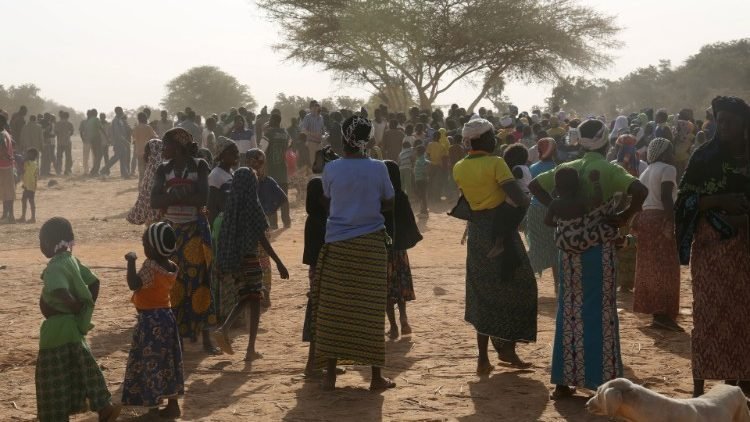Pope Francis prays for the victims of terror attacks in the West African nation of Burkina Faso and appeals for the promotion of interreligious dialogue and harmony
.
By Linda Bordoni
Pope Francis says his thoughts are with the people of Burkina Faso which is “suffering from recurrent episodes of violence, and where a recent attack killed almost one hundred people”.
Speaking during the weekly General Audience in St. Peter’s Square, the Pope made a powerful appeal to authorities to protect vulnerable civilians and step up their efforts to find a solution to the violence.
“I encourage civil and religious authorities and all those motivated by good will to multiply their efforts, in the spirit of the Abu Dhabi Document on Human Fraternity, to promote interreligious dialogue and harmony”, he said.
The Pope also entrusted the victims of the attacks to God and prayed for the wounded and the many displaced people suffering from “these tragedies”.
Pope Francis’ appeal comes on the heels of adeadly attack by fundamentalist Islamic militants in which scores of people were killed and injured.
Al Qaeda affiliates
The Jama’at Nasr al-Islam wal Muslimin (JNIM), that ambushed a gendarme-escorted workers convoy from the Boungou gold mine, near Nassougou, is a regional affiliate of al Qaeda in the Islamic Maghreb and has been active in Burkina Faso since 2017.
The attack comes as several West African countries battle Islamist insurgents who are increasingly disrupting business and forcing governments to abandon large swathes of territory. The raids have spread from Sahel countries such as Mali, Niger and Burkina Faso toward the borders with coastal nations, including Ghana and Ivory Coast
It is not the first time that Pope Francis has prayed for victims of attacks in Burkina Faso. In May 2019 he expressed his pain over an attack by gunmen on a Catholic church in Burkina Faso after Sunday Mass in which six people were killed, including a priest.
Agreement between Holy See and Burkina Faso
In July an agreement was signed between Burkina Faso and the Holy See in which “the two parties, although safeguarding the independence and autonomy that are their own, commit to collaborate for the moral, spiritual and material wellbeing of the human person and for the promotion of the common good”.



